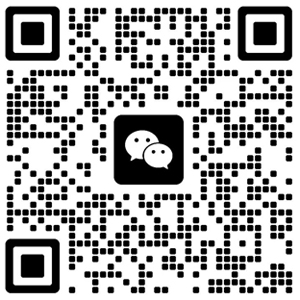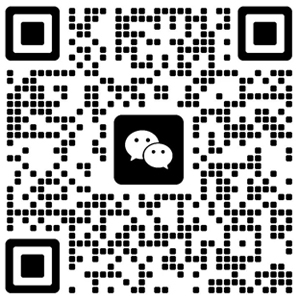
留学美国条件状语_留学美国条件是什么
- 留学条件
- 2024-08-26 12:36:15
留学美国条件状语一直是人们关注的焦点,而它的今日更新更是备受瞩目。今天,我将与大家分享关于留学美国条件状语的最新动态,希望能为大家提供一些有用的信息。
文章目录列表:
1.英语状语从句知识点归纳2.状语从句的分类
3.英语if翻译为"是否"和"如果"时,if前后句子的时态分别有什么要求
4.状语从句的种类
5.虚拟条件句中I必须用were,有用was的情况吗
6.假如你叫李华,打算毕业后到美国留学,请给你的美国笔友 Tom写一封电子邮件,内容主要包括: 1.留美原因-----

英语状语从句知识点归纳
一、引导方式状语从句的从属连词
主要的有as, as if, as though等:
You must do as your parents tell you. 你必须按你父母说的去做。
I have changed it as you suggest. 我已照你的建议作了改动。
I am as you can imagine short of money. 正如你能想像的我很缺钱。
Robbie didn’t feel as she did. 洛比没有她那种感觉。
They treated the child as if she were their own. 他们待这孩子像亲生的一样。
I remember the whole thing as if it happened yesterday. 整个这件事我记得很清楚,就仿佛是昨天发生似的。
注(1) 在非正式文体中,like也可用连词,表示方式,与as的用法相似:
Nobody loves you like I do. 没有人像我这样爱你。
She can’t cook like her mother does. 她菜做得没有她妈那样好。
(2) 有时the way 也可用作连词,表示方式,与as的用法相似:
They didn’t do it the way we do now. 那时他们不像我们现在这样行事。
I can’t help seeing things the way they do. 我禁不住也像他们那样看事物。
二、as if [as though] 从句与虚拟语气
一般说来,若as if 和as though 从句所表示的内容可能为事实,则用陈述语气,若为假设或不大可能为事实,则用虚拟语气。不过在非正式文体中,有时即使句意明确地表示不是事实,也可能用陈述语气:
He treats me as if I am [were] a stranger. 他待我有如陌生人。
The stuffed dog barks as if it is [were] a real one. 这个玩具狗叫起来像是真狗似的。
省略句知识点总结:谈谈状语从句的省略问题
导语 英语语法让很多学生都头疼,因为复杂难懂的句式和词组有时难以记忆。为大家整理了英语语法大全,希望对同学们的英语语法学习有所帮助。更多内容尽在。
为了简洁起见,有的状语从句(如时间状语从句、条件状语从句、方式状语从句等)有时可省略从句的主语和部分谓语(尤其是当从句主语与主句主语一致,且从句谓语包括有动词be时):
She fell asleep while (he was) doing his homework.
他在做作业时睡着了。
While (he was) doing so, he trembled a little.
他这样做时稍稍颤抖了一下。
He opened his mouth as if (he was) to speak.
他张开口,好像要说话似的。
Often she would weep when (she was) alone.
她一个人时,常常哭泣。
I’d like to see you whenever (it’s) convenient.
在你方便的时候我想来看看你。
If (you are) traveling north,you must change at Leeds.
如果你是向北行,你必须在里兹换车。
注有些由if构成的`省略结构,已属固定短语,如if any, if necessary, if possible, if not, if so:
There are few, if any, mistakes in that book.
那本书就是有错误也不多。
If necessary, ring me at home.
如果必要,可以打电话到我家找我。
If possible, I wish to go there next summer.
如果可能,我希望明年夏天去。
He may be busy. If so, I’ll call later. If not, can I see him now?
他可能很忙,要是这样,我以后再来拜访。要是不忙,我现在可以见他吗?
省略句知识点总结:分词作状语的主要用法
导语 英语语法让很多学生都头疼,因为复杂难懂的句式和词组有时难以记忆。为大家整理了英语语法大全,希望对同学们的英语语法学习有所帮助。更多内容尽在。
1. 表时间
Seeing the cat, the mouse ran off. 见到猫,老鼠就跑了。
The work finished, he went home. 工作做完后,他就回家了。
2. 表原因
Being very weak, she couldn't move. 她由于身体虚弱而不能行动。
His car broken down, he had to walk. 他的车坏了,所以只好走路。
3. 表条件
United, we stand; divided, we fall. 团结则存,分裂则亡。
Given more time, we could have done it better. 如果多给点时间,我们可以做得更好。
Working hard, you will succeed. 如果努力工作,你就可以成功。
Adding them all up, we can find the answer. 如果把它们加起来,我们就可以得到答案。
4. 表让步
Although living miles away, he attended the course. 虽然住在几英里以外,他仍去上课。
Defeated, he remained a popular boxer. 虽然被击败了,他仍是一个受欢迎的拳击手。
5. 表方式
He earns a living driving a truck. 他靠开卡车谋取生。
I'm returning you letter as requested. 我按要求给你退信。
6. 表伴随
He sat in the chair reading newspapers. 他坐在椅子上看报。
Don't you sit there doing nothing. 别什么也不干坐在那里。
He came in, followed by his wife. 他走了进来,后面跟着他的妻子。
7. 表结果
He fired, killing one of the passers-by. 他开枪了,打死了一个过路人。
He died, leaving his wife with five children. 他死了,留下他妻子和五个儿子。
It rained and rained, vehicles bogged and bridges washed out. 雨不停地下,车辆陷入泥沼,桥梁被水冲去。
省略句知识点总结:知识点总结
导语 英语语法让很多学生都头疼,因为复杂难懂的句式和词组有时难以记忆。为大家整理了英语语法大全,希望对同学们的英语语法学习有所帮助。更多内容尽在。
知识点总结
概念:为了避免重复,常常省略句子中的一个或几个成分,这样的句子叫省略句。
1. 简单句中的省略:
(1)Looks like rain.
(2)Hope to hear from you soon.
(3)Sounds like a good idea.
(4)Beg your pardon.
(5)Feeling better today ?
(6)This way, please.
(7)—What does he want to eat ?
—Some rice and vegetables.
(8)Anything I can do for you ?
(9)Sorry to hear that.
(10)Doesn’t matter.
(11)Terrible weather!
(12)Pity you couldn’t come.
2. 并列句中的省略:
在并列句中,相同的成分如主语,谓语,宾语等都可以省略:
(1)They learn French and we English.
(2)My father planned and built all these houses.
(3)John won the first race and Jimmy the second.
(4)Coral is not a plant buta variety of animal life.
英语语法倒装句知识点:让步状语从句倒装用法系统归纳
导语 英语语法让很多学生都头疼,因为复杂难懂的句式和词组有时难以记忆。为大家整理了英语语法大全,希望对同学们的英语语法学习有所帮助。更多内容尽在。
有这样一道考题:
_________, he talks a lot about his favorite singers after class.
A. A quiet student as he may be B. Quiet student as he may be
C. Be a quiet student as he may D. Quiet as he may be a student
这道题很有一定难度。具体说来,它主要涉及两个考点:一是让步状语从句倒装后的词序问题。让步状语从句之所以要采用倒装结构,主要是为了强调位于句首的名词、形容词、副词、动词等,其词序形式为:被强调的成分+as / though + 主语+动词。二是在倒装的让步状语从句中,位于句首的单数可数名词是否带冠词的问题。按照英语习惯,英语中的单数可数名词在泛指时,一般要有不定冠词的修饰,但是位于倒装让步状语从句句首的单数可数名词是个例外,即使泛指其前也不加不定冠词。由此可知,上面这道考题的答案应为B。
为了帮助大家全面掌握让步状语从句的倒装用法,本文将这类语法现象归纳为以下五种句型:
一、名词+as / though+主语+动词
King as he was, he was unhappy. 他虽是国王,但他并不幸福。
Child as he is, he knows to help other. 他虽是个孩子,但却知道帮助别人。
Teacher though he is, he can’t know everything. 他虽然是老师,但也不可能什么都懂。
说明 其中的动词通常为连系动词,也就是说位于句首的名词是其后连系动词的表语。另外,要特别注意位于句首的名词前习惯上不用冠词,即使其前有形容词修饰也不用冠词。比较:
Boy as [though] he is, he likes to play with girls.=Though [Although] he is a boy, he likes to play with girls. 他虽是男孩,却喜欢与女孩子玩。
Strong man as [though] he is, General Botha has been severely put to the test during the past few weeks.= Though [Although] he is a strong man, General Botha has been severely put to the test during the past few weeks. 波赛将军虽然坚强,但在过去的数周里也受到了严峻的考验。
二、形容词+as / though+主语+动词
Successful as he is, he is not proud. 他虽然成功,但不骄傲。
Improbable as it seems, it’s true. 虽然看起来不太可能,但却是真的。
Stupid as it sounds,I was so in love with her that I believed her. 尽管听起来很愚蠢,我是如此爱她竟然相信了她的话。
Patient as he was,he didn’t like waiting that long. 他虽说有耐心,也不愿等这么长。
Beautiful though the necklace was,we thought it was over-priced. 那条项链虽然很漂亮,我们认为价钱太高。
说明 其中的动词也通常为连系动词,也就是说位于句首的形容词是其后连系动词的表语。
三、副词+as / though+主语+动词
Much as I like Paris, I couldn’t live there. 尽管我喜欢巴黎,但我不能住在那里。
Hard though they tried, they couldn’t make her change her mind. 尽管他们做了很大努力,却没法让她改变主意。
Fast as you read, you can’t finish the book in two days. 尽管你读得很快,你总不能在两天之内就读完这本书。
He was unable to make much progress, hard as he tried. 尽管他做了努力,却未能取得很大进步。
Heavily as it is raining, the football game has been decided not to be put off. 尽管雨下得很大,但还是决定不推迟足球比赛。
说明 有的词典将much as 作为习语看待,认为它是一个用以引导让步状语从句的复合连词。再如:
Much as I admire him as a writer,I do not like him as a man. 他作为一名作家我很佩服他,但我却不喜欢他这个人。
Much as I like you, I couldn’t live with you. 我尽管很喜欢你, 却不能和你在一起生活。
四、动词原形+as / though+主语+动词
Object as you may, I’ll go. 纵使你反对,我也要去。
Try as he might, he couldn’t solve the problem. 尽管他想方设法,却未解决这个问题。
Search as they would, they would find nobody in the house. 无论怎样搜查,他们在房子里仍然没有找到一个人。
Dislike him as we may, we must acknowledge his greatness. 尽管我们不喜欢他,但必须承认他的伟大。
Lose money as I did, we got a lot of experience. 钱虽然丢了,我们却得到了许多经验。
Fail in the election as he did, he became famous for his fiery speech against slavery. 尽管落选了,但他却以其反对奴隶制的激烈演说而出了名。
说明 主语后的动词通常为may, might, would, did 等情态动词或助动词(若表示情态意义,则选用情态动词;若陈述事实,则用did, do 等助动词)。
五、分词+as / though+主语+动词
Raining hard as it is, I’m going out for a walk. 虽然正在下着大雨,我还是要出去散步。
Surrounded as we were by the enemy, we managed to march forward. 虽然我们被敌人包围着,但我们还是设法前进了。
Munching the apple as he was, he had got an eye for all John’s movements. 他尽管在一个劲地嚼着苹果,但仍警惕着约翰的一举一动。
三条补充说明
1. 这类倒装的让步状语从句可用as, though 来引导,但不能用although来引导;但是,未倒装的让步状语从句则可用though, although来引导,而不能用as来引导。也就是说,although引导让步状语从句时不能倒装,as引导让步状语从句时必须倒装,而though引导让步状语从句时可以倒装也可以不倒装。如:
虽然很晚了,但我们还是继续工作。
正:Late as [though] it was, we still went on working.
正:Though [Although] it was late, we still went on working.
误:Late although it was, we still went on working.
误:As it was late, we still went on working.
2. 上面提到的倒装结构有时也可用来表示原因,区别的办法主要看句子的内容:让步从句的内容大多数与主句在意义上相反,而原因从句则与主句之间有因果关系。比较:
Tired as he was, he sat up late studying at night. 昨晚他虽然很疲倦了,但还是学习到很晚才睡。(表让步)
Tired as he was, he went to bed early. 因为很累,所以他睡得很早。(表原因)
Young as he was, he was equal to the task. 他虽年轻,却能胜任这项工作。(表让步)
Young as he was, he was not equal to the task. 他因为年轻,所以不能胜任这项工作。(表原因)
3. 在美国英语中,人们通常用as…as引导让步状语从句。如:
Cold as it was, we went out.=As cold as it was, we went out. 尽管天气冷,我们还是出去了。
Successful as he is, he is not proud.=As successful as he is, he is not proud. 他虽成功了,但不骄傲。
英语语法倒装句知识点:as引导让步状语从句时的倒装
导语 英语语法让很多学生都头疼,因为复杂难懂的句式和词组有时难以记忆。为大家整理了英语语法大全,希望对同学们的英语语法学习有所帮助。更多内容尽在。
as作“虽然”解,引导让步状语从句时,必须将表语、状语或动词原形提到as前面。
此时应注意几点: 一是若提前的表语是没有形容词修饰的单数可数名词,要省略不定冠词;二是若提前的是动词原形(多为不及物动词),与之连用的通常是may, might, will, would等,且这些词都要保留在原来的位置上(主语后);三是though有时也可像as这样使作倒装。如:
Tired as I was, I tried to help them.
虽然我很累,我还是努力帮助他们。
Try as he would, he couldn’t open the door.
他试过多次了, 却仍打不开那门。
Search as they would, they would find nobody in the house.
无论怎样搜查,他们在房子里仍然没有找到一个人。
Hard as (though) they tried, they couldn’t make her change her mind.
尽管他们做了很大努力,却没法让她改变主意。
Boy as he was, he behaved like a girl.
他虽是个男孩,但举止却像个女孩。
状语从句的分类
1.时间状语从句
2.地点状语从句
3.原因状语从句
4.条件状语从句
5.目的状语从句
6.让步状语从句
7.比较状语从句
8.方式状语从句
9.结果状语从句
1. 时间状语从句
常用引导词:when, as, while, as soon as, before, after, since , till, until
特殊引导词:the minute, the moment, the second, every time, the day,the instant, immediately , directly, no sooner … than, hardly …when, scarcely … when
I didn’t realize how special my mother was until I became an adult.
While John was watching TV, his wife was cooking.
The children ran away from the orchard(果园), the moment they saw the guard.
No sooner had I arrived home ,then it began to rain.
Every time I listen to your advice, I get into trouble.
2. 地点状语从句
常用引导词:where
特殊引导词:wherever, anywhere, everywhere
Generally, air will be heavily polluted where there are factories.
Wherever you go, you should work hard.
地点状语从句一般由连接副词where, wherever等引导,已经形成了固定的句型,例如:
句型1:Where+地点从句,(there)+主句。
注意此句型通常译成“哪里……哪里就……”;主句在从句后面时,there可用可不用;如果主句在从句的前面时,一般都不用there。例如:
Where there is no rain, farming is difficult or impossible.在没有雨水的地方,耕作是困难的,或根本不可能的。
They were good persons. Where they went, there they were warmly welcomed. 他们都是好人。因此他们走到哪里都受到热烈欢迎。
You should have put the book where you found it. 你本来应该把书放回原来的地方。
Where the Communist Party of China goes, there the people are liberated.哪里有了中国***,哪里人民得解放。
句型2:Anywhere/ wherever+地点从句,+主句。
注意anywhere本身是个副词,但是,常可以引导从句,相当于连词,意思相似于wherever, anywhere引导的从句可位于主句之前,也可以位于主句之后。 而wherever本身就是个连词,表示“在何处,无论何处”。例如:
Wherever the sea is , you will find seamen.有海就有海员。
3. 原因状语从句
常用引导词:because, since, as, for
特殊引导词:seeing that, now that, in that, considering that, given that.
My friends dislike me because I’m handsome and successful.
Now that everybody has come, let’s begin our conference.
The higher income tax is harmful in that it may discourage people from trying to earn more.
4. 目的状语从句
常用引导词:so that, in order that
特殊引导词:lest, in case, for fear that,in the hope that, for the purpose that, to the end that
The boss asked the secretary to hurry up with the letters so that he could sign them.
The teacher raised his voice on purpose that the students in the back could hear more clearly.
5. 结果状语从句
常用引导词:so … that, such … that,
特殊引导词:such that, to the degree that, to the extent that, to such a degree that,
He got up so early that he caught the first bus.
It’s such a good chance that we must not miss it.
To such a degree was he excited that he couldn’t sleep last night.
6. 条件状语从句
常用引导词:if, unless,
特殊引导词:as/so long as, only if, providing/provided that, supposing that, in case that, on condition that
We’ll start our project if the president agrees.
You will certainly succeed so long as you keep on trying.
Provided that there is no opposition, we shall hold the meeting here.
7. 让步状语从句
常用引导词:though, although, even if, even though
特殊引导词: as(用在让步状语从句中必须要倒装),while ( 一般用在句首 ),no matter …, in spite of the fact that, while, whatever, whoever, wherever, whenever, however, whichever
Much as I respect him, I can’t agree to his proposal.
尽管我很尊敬他, 我却不同意他的建议。
The old man always enjoys swimming even though the weather is rough.
No matter how hard he tried, she could not change her mind.
He won’t listen whatever you may say.
8. 比较状语从句
常用引导词:as(同级比较), than(不同程度的比较)
特殊引导词:the more … the more … ; just as …, so…; A is to B what /as X is to Y; no … more than; not A so much as B
She is as bad-tempered as her mother.
The house is three times as big as ours.
The more you exercise, the healthier you will be.
Food to men is what oil is to machine. 食物之于人,犹如油之于机器。
9. 方式状语从句
常用引导词:as, as if, how
特殊引导词:the way
When in Rome, do as the Roman do.
She behaved as if she were the boss.
Sometimes we teach our children the way our parents have taught us.
10. 状语从句的简化
状语从句的省略状语从句同时具备下列两个条件:①主句和从句的主语一致,或从句主语为it;②从句主要动词是be的某种形式。从句中的主语和be动词常可省略。例如:
When ( the museum is ) completed , the museum will be open to the public next year .
He’ll go to the seaside for his holiday if (it is ) possible.
另外,比较状语从句经常省略。例如:
I’m taller than he (is tall ).
The higher the temperature (is), the greater the pressure (is ).
就状语从句而言,有时为了使语言言简意赅,常常将状语从句进行"简化"。状语从句的"简化"现象在口语中较为普遍,而且在高考中的复现率也较高。因此,有必要对其进行全面、透彻的了解。
状语从句的"简化"现象常存在于以下五种状语从句中:①由if, unless等引导的条件状语从句;②由although, though, even if / though等引导的让步状语从句;③由when, while, as, before, after, until / till等引导的时间状语从句;④由as, as if等引导的方式状语从句;⑤由as, than等引导的比较状语从句。下面针对这五种情形作一归纳。
(1)当状语从句的主语是it,且谓语动词是be时,it和be要完全简化掉。例如:
If (it is) possible, he will help you out of the difficulty.如果可能的话,他会帮你摆脱困境。
You must attend the meeting unless (it is) inconvenient to you.除非情况对你来说不方便,否则你必须出席这次会议。
(2)当状语从句的主语和主句的主语一致时,从句可以将主语和be动词简化掉。常用于以下几种情形:
a.连词+形容词
As (he was) young, he learned how to ride a bike.他小时候就学会了骑自行车。
Whenever (she is) free, she often goes shopping.她有空就去逛商店。
Work hard when (you are) young, or you'll regret.少壮不努力,老大徒伤悲。
b.连词+名词
While (he was) a young boy, he was always ready to help others.他在孩提时代就乐于助人。
Although (he was) a farmer, now he is a famous director.尽管他曾是个农民,而现在是位著名的导演了。
c.连词+现在分词
As (she was) walking along the river bank, she was singing a pop song.她沿着河堤边走边唱着流行歌曲。
Although (he is) doing his best in maths these days, he has still got no good marks.尽管近来他一直在学数学,但他仍然没有取得好成绩。
d.连词+过去分词
He won't go there with us unless (he is) invited.除非受到邀请,否则他不会和我们一道去那里。
The concert was a great success than (it was) expected.这场音乐会出乎意料地取得了巨大成功。
e.连词+不定式
He stood up as if (he were) to say something.当时他站起来好像要说什么。
He wouldn't solve the problem even if (he were) to take charge.即使他来负责,他也解决不了这个问题。
f.连词+介词短语
She looked anxious as though (she was) in trouble.她看上去很焦急,好像遇到了麻烦。
He had mastered the English language before (he was) in the USA.他到美国之前就懂英语了。
注意:当从句主语和主句主语不一致时,从句部分要么用完全形式,要么用独立主格结构来表达。例如:
When the meeting was over, all the people went out of the meeting-room.当会议结束时,人们都走出了会议室。(=The meeting over,
英语if翻译为"是否"和"如果"时,if前后句子的时态分别有什么要求
根据句子结构来判断:
1、if 作为“ 是否” 引导的是宾语从句,表语从句,一般放在动词后;不能放在句子开头。从句根据句子意思可用不同的时态。
2、if 作为“如果” 引导的是条件状语从句,从句放在句子开头时,后面用逗号‘,’ 隔开;从句放在主句之后时不能用逗号分开;遵循“ 主将从现”原则,即:主句用一般将来时,从句用一般现在时。
if 作为‘ 如果“时,常见的句型有下面情况:
1)主句是一般将来时+if +一般现在时;?
2)主句是祈使句+if +一般现在时;
3)主句有情态动词+if +一般现在时
如
1、I don't know if he will come tomorrow.
我不知道他明天是否会来。
2、 I am not sure if he has finished his homework .
我不确定他是否已完成作业。
3 、I want to know if he is from America.
我想知道他是否来自美国。?
扩展资料:
1. if和whether在宾语从句中,都表“是否”,可换用,if更口语化,whether正式些。
当有or not时, 一般用whether,而不用if。
He wants to know if/whether you can help him.
She wonders whether you'll go or not.
2. if可引起条件状语从句,whether不用于状语从句。
If you work hard, you'll succeed.
If I were you , I would do it in another way.
参考资料来源:IF (英文单词) -百度百科
状语从句的种类
状语从句的类型:时间状语从句、地点状语从句、原因状语从句、目的状语从句等。
时间状语从句:凡是从句都必须有引导词,引导时间状语从句的词有when,before,after,until,assoonas,while等。
条件状语从句:主要看一下由if引导的条件状语从句。
状语从句根据其作用可分为时间、地点、原因、条件、目的、结果、让步、方式和比较等从句。状语从句一般由连词引导,也可以由词组引起。一站式出国留学攻略 ing.com
虚拟条件句中I必须用were,有用was的情况吗
没有见过哟。
1.表示与现在事实相反的假设时,条件状语从句中的谓语动词用“过去式(be的过去式用were)”。而主句中的谓语动词用“would(should, could, might)+动词原形”。如:If John had enough money, he could go out of the U.S.如果约翰有足够的钱,他就会离开美国。
If I were in your position, I would accept their offer.如果我处于你的位置,我就接受他们的提议。
2.表示与过去的事实相反的假设时,条件状语从句的谓语动词用“had+过去分词”,主句中的谓语动词用“would(should, could, might)+have+过去分词”。如:If you had taken my advice, you wouldn't have failed in the examination.假若你听从我的建议,你就不会考试不及格了.
If I had known your address, I would have written to you.假如我知道你的地址,我早就给你写信了。
3.表示与将来事实相反的假设时,主句中的谓语动词用“would(should, could, might)+动词原形”,条件从句中用“were to (should)+动词原形”,如:If the sun were to rise in the west, I would follow you.假如太阳从西边升起,我就听你的。
If he should come tomorrow, we would be greatly surprised.要是他明天来了,我们会大感惊讶。
4.当条件状语从句表示的行为和主句表示的行为所发生的时间不一致时,动词的形式要依据它所表示的时间来调整。如:If you had taken the medicine yesterday, you might be well now.如果你昨天吃了药, 你的病今天也许就好了。
If he had taken my advice, he would be a scientist now.如果当时他听了我的劝告, 现在他应该是个科学家了。
5.以上句型可以转换成下列形式:
① 省略if用“were, had, should+主句”。如:Were I in school again, I would work harder.假若我再上学的话,我会更加努力学习。
Had you been here earlier, you would have seen him.要是你早点来的话,你就会见到他。
但在虚拟条件状语从句中,省略连词的倒装形式的句首不能用动词的缩略形式,如我们可以说:Were it not for the expense, I would go to Italy.但不能说:Weren't it for the expense, I would go to Italy.
② 用介词短语without, but for代替条件状语从句。如: Without air, there would be no living things. 没有空气,就没有生命。
But for your help, I couldn't have made so much progress.要不是你的帮助,我不可能取得这么大的进步。
假如你叫李华,打算毕业后到美国留学,请给你的美国笔友 Tom写一封电子邮件,内容主要包括: 1.留美原因-----
| Dear Tom, I’ve finally made up my mind to go to America for further study after graduation. I’ve been longing to go to America, mainly for two reasons. One is that I want to experience American culture, which is believed to be the most diverse in the world, and the other is that I hope to broaden my horizon in this developed country. But to tell you the truth, I have some worries about this. I don’t have a good command of English, especially spoken English, so I’m afraid I’ll have difficulty fitting in very soon. Besides, I may suffer from high pressure from college courses, which I’m not sure I can handle. With so many things bothering me, I hope you can offer me some practical advice. Looking forward to your reply.? Yours, Li Hua |
| 试题分析:考查应用文中的书信的写作。要求向你的笔友Tom写一封电子邮件。介绍你想去美国留学的原因和现在的困惑,并向对方征求意见。要点都已经给出,注意本文使用一般现在时,描述要尽量选择简洁的语言,运用合适的语法规则和词汇把各要点都准确表述出。难点在于选择词汇和句型,可以灵活运用高级词汇和固定短语准确表述。句式上要富有变化,简单句和复杂句结合使用,还要用适当的连接词被句子连接起来,象for instance, Furthermore,等词,这样文章显得更连贯。 亮点说明One is that I want to experience American culture, which is believed to be the most diverse in the world, and the other is that I hope to broaden my horizon in this developed country.这句话用了并列句,表语从句和定语从句, I don’t have a good command of English, especially spoken English, so I’m afraid I’ll have difficulty fitting in very soon.这句话用了词组“have a good command of”精通,和结果状语从句,I may suffer from high pressure from college courses, which I’m not sure I can handle.这句话用了非限制性定语从句, With so many things bothering me, I hope you can offer me some practical advice.这是with复合结构。还有文章还使用了关联词But to tell you the truth, Besides,使文章更加连贯。 |
好了,今天关于“留学美国条件状语”的话题就讲到这里了。希望大家能够通过我的介绍对“留学美国条件状语”有更全面的认识,并且能够在今后的实践中更好地运用所学知识。如果您有任何问题或需要进一步的信息,请随时告诉我。

请添加微信号咨询:19071507959
留学美国条件状语_留学美国条件是什么由留学帮手网留学条件栏目发布,感谢您对留学帮手网的认可,以及对我们原创作品以及文章的青睐,非常欢迎各位朋友分享到个人网站或者朋友圈,但转载请说明文章出处“留学美国条件状语_留学美国条件是什么”















